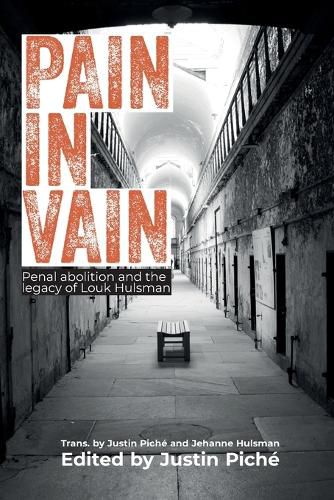Readings Newsletter
Become a Readings Member to make your shopping experience even easier.
Sign in or sign up for free!
You’re not far away from qualifying for FREE standard shipping within Australia
You’ve qualified for FREE standard shipping within Australia
The cart is loading…






This title is printed to order. This book may have been self-published. If so, we cannot guarantee the quality of the content. In the main most books will have gone through the editing process however some may not. We therefore suggest that you be aware of this before ordering this book. If in doubt check either the author or publisher’s details as we are unable to accept any returns unless they are faulty. Please contact us if you have any questions.
In the 1960s-70s, the abolition of prisons was considered a desirable and viable policy option among a growing number of critical prison scholars and organizers. Penal system bureaucrats and their political masters in several western liberal democracies also sought a significant reduction in the use of incarceration. Yet, despite this rhetoric and the growth of alternatives to incarceration that ensued, prison populations in many parts of the world instead began to soar.
It is in this context that Louk Hulsman, a founder of prison abolitionism, suggested that the abolition of prisons depended not on the creation of community-based sanctions, but on the abolition of criminalization and punishment as a way of thinking about and responding to 'crime'.
While Hulsman's call for penal abolition became influential amongst scholars and activists, the complexity of his analysis and its origins have often been overlooked. In part, this is due to the fact that he unpacked his ideas in the greatest depth during a course of interviews with Jacqueline Bernat de Celis in Peines perdues: le systeme penal en question (Le centurion, 1982).
This edited anthology seeks to address this gap by providing the de Celis interviews in English for the first time and including reflections by academics, activists, politicians, policymakers, and practitioners analyzing the global impact of Louk Hulsman's life and work. In so doing, this project highlights the contemporary viability of abolitionism, along with the challenges faced by its proponents.
$9.00 standard shipping within Australia
FREE standard shipping within Australia for orders over $100.00
Express & International shipping calculated at checkout
This title is printed to order. This book may have been self-published. If so, we cannot guarantee the quality of the content. In the main most books will have gone through the editing process however some may not. We therefore suggest that you be aware of this before ordering this book. If in doubt check either the author or publisher’s details as we are unable to accept any returns unless they are faulty. Please contact us if you have any questions.
In the 1960s-70s, the abolition of prisons was considered a desirable and viable policy option among a growing number of critical prison scholars and organizers. Penal system bureaucrats and their political masters in several western liberal democracies also sought a significant reduction in the use of incarceration. Yet, despite this rhetoric and the growth of alternatives to incarceration that ensued, prison populations in many parts of the world instead began to soar.
It is in this context that Louk Hulsman, a founder of prison abolitionism, suggested that the abolition of prisons depended not on the creation of community-based sanctions, but on the abolition of criminalization and punishment as a way of thinking about and responding to 'crime'.
While Hulsman's call for penal abolition became influential amongst scholars and activists, the complexity of his analysis and its origins have often been overlooked. In part, this is due to the fact that he unpacked his ideas in the greatest depth during a course of interviews with Jacqueline Bernat de Celis in Peines perdues: le systeme penal en question (Le centurion, 1982).
This edited anthology seeks to address this gap by providing the de Celis interviews in English for the first time and including reflections by academics, activists, politicians, policymakers, and practitioners analyzing the global impact of Louk Hulsman's life and work. In so doing, this project highlights the contemporary viability of abolitionism, along with the challenges faced by its proponents.